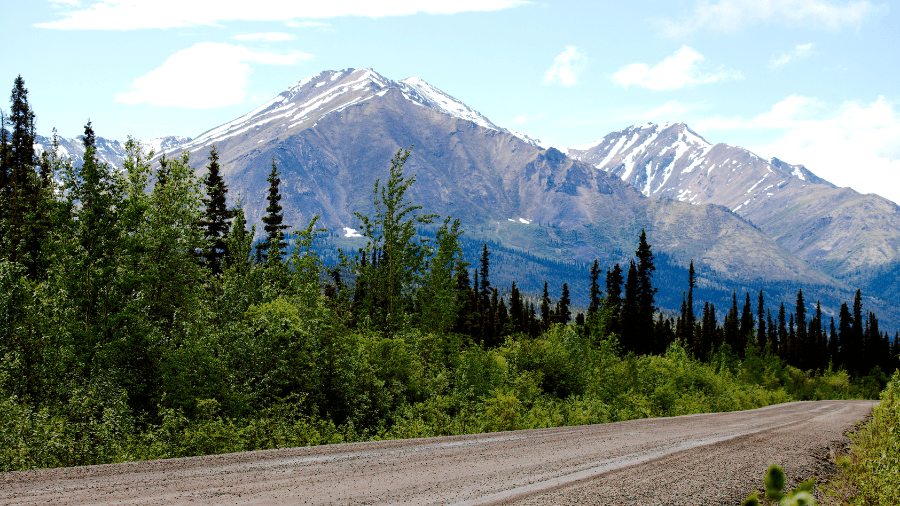By Ken Coates and David Silas, November 6, 2023
As accountants scramble to find new owners for the Minto Mine in central Yukon, which abruptly shut down last spring, the closure continues to cost the territorial government millions of dollars for water treatment and environmental protection.
It is also a stark example of the challenges Indigenous communities face in trying to establish economic and social stability.
For generations, Indigenous peoples have long fought for a place in Canada’s resource economy. Having been largely denied economic benefits of mining on their land, yet saddled with the social and environmental consequences, they wanted fairness from the extractive sector. They won battles, but no guarantees of economic security.
Finding stability in an industry shackled to global market volatility is challenging. When a mine opens, the only certainty is that someday it will close.
In the Northwest Territories, Indigenous communities have been working for years to offset the planned closure of diamond mines. In Saskatchewan, the cyclical closings and reopenings of uranium mines have disruptive impacts on First Nations and Metis communities.
When communities engage with mining companies – and many First Nations, Inuit and Metis communities do – they seek training, long-term jobs and financial returns for their communities. This can create thousands of jobs and support hundreds of businesses. But then, often with little warning, the mines close.
In Yukon Territory, the Selkirk First Nation, whose lands lie close to the mineral rich Tintina Trench and Yukon River valley, has long played modest roles in their region’s small mining operations. In the 1970s a copper and gold deposit — the future Minto Mine — was identified near their main community of Pelly Crossing (population 316, about 40 per cent of the entire Selkirk First Nation). Thus began years of episodic surveying, exploration and early-stage development.
In 1993 the Selkirks signed the Yukon Umbrella Agreement, which included a self-government agreement with the Government of Canada. The Minto deposit is within is their lands; the Indigenous government controls both surface and sub-surface rights.
The mine became operational in 2007, and for 15 years the operation provided substantial returns to the Selkirks. Training programs, supported by the company and by federal and territorial governments, prepared Selkirk citizens for jobs in mining, and local businesses engaged extensively with the company. Spinoff benefits included a piped water system and water treatment plan built by the mining company, while local youths received a royalty payment of $21,000 when they turned 18.
While not massive like Voisey’s Bay mine in Labrador or Baffinland in Nunavut, the operation brought major revenues to the First Nation. The community was eager for stability and growth, and the Minto mine provided both.
Until it stopped.
Last May, the Minto Mine abruptly declared bankruptcy. Stunned workers immediately left the site as the Selkirk First Nation and the Yukon government moved to understand the consequences of the closure and prepare for the new reality. The mine was thrust into the hands of the territorial government, as was responsibility for downstream environmental impacts and remediation. Local residents lost jobs; businesses lost a major income stream.
Lawyers, however, were busy. The Yukon government and Selkirk First Nation fought for, and secured, more than $1.75 million in outstanding royalty payments, which was transferred to the First Nation. Those royalties, which had financed expanded cultural programming, local infrastructure and improved community governance, will be sorely missed in the coming years.
The future remains uncertain. With sufficient market demand a new owner could restore a profitable operation, but it is also possible the mine will close permanently. Mineral exploration continues, and another viable deposit could be found. If so, based on the slow development of Minto, the Selkirk First Nations could wait 20 years before a mine is functioning again.
Nationally, the Minto closure scarcely registered on public awareness. It lacks the scale of the oilsands, massive infrastructure projects, or Ontario’s Ring of Fire. But to the Selkirk First Nation, the Minto Mine brought prosperity and hope. As future opportunities emerge, this experience has shown how royalties and other natural resource income helped a First Nation build their community and improve peoples’ lives.
The closure also illustrates the benefits and risks of Indigenous collaboration with resource development. By being such a game-changing benefit to the Selkirk First Nation, the Minto story exposed the comparatively limited levels of engagement happening on Indigenous lands across Canada.
In a resource community, it is difficult to navigate the painful — but inevitable — closure of the mine, however the Selkirks are a resilient people. They have survived epidemic diseases, the Klondike Gold Rush, the post-war mining boom, and a lifetime of government paternalism. They will adapt again.
Indigenous communities need leverage to achieve fair and strong returns from resource operations. For the Selkirks, the Yukon Umbrella Agreement meant they could employ hard-won treaty rights and ensure that resources being taken from their lands were improving lives in their community. The Minto experience made them better able to recognize and manage new opportunities, and they will continue to search for new ways to control their destiny and be a significant part of the Indigenous-led transformation of the Canadian North.
The Selkirks are actively engaged in discussions on the future of the Minto mine. Previously, a First Nation was not involved from the outset, but that has changed and now the First Nation will play a central role in determining the future of mining in their territory.
Ken Coates is Chair of Yukon University’s Indigenous Governance Program, and Distinguished Fellow at the Macdonald-Laurier Institute.
David Silas is a member of the Selkirk First Nation and a faculty member in Yukon University’s Indigenous Governance Program






